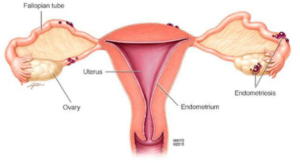
All couples wishing to start a family want to have children. Fertility treatment in Turkey is a way for those who have difficulties conceiving to get professional medical assistance.
About fertility treatment in Turkey
Fertility treatments are medical treatments in which fertility specialists help diagnose, treat, and prevent fertility-related problems, such as if a couple is unable to conceive and other associated issues.
Who should consider fertility treatment in Turkey?
Here are some of the main related issues for which you should consider a fertility treatment in Turkey:
- You have been having unprotected sex (contraceptive sex) for more than 12 months, but you cannot conceive.
- You are a woman, your age is 35 or more, and you have been trying to conceive for more than six months without any positive results.
- You have had at least two miscarriages.
- Your partner has trouble to get or maintain an erection
- You don’t have periods, have irregular periods or heavy bleeding
- You or your partner have had a history of sexually transmitted diseases (STDs)
Fertility treatment in Turkey: in Vitro: Assisted reproduction and embryo transfer technology
IVF (in vitro fertilisation) is a technique of Assisted Medical Reproduction (ART) and embryo transfer, aiming to inject sperm directly into the egg outside the woman’s uterus.
- This laboratory technique makes it possible to fertilisation with all its natural stages aimed at developing embryos outside the body.
- In general, IVF is offered if other ART methods have failed or when the cause of the couple’s infertility is unknown.
- The woman must have a normal ovarian function; that is to say, her age is suitable to procreate and have oocytes.
- If the woman suffers from infertility problems, she can benefit from this IVF technique to get children.
Fertility treatment in Turkey: In-Vitro fertilisation makes it possible to overcome the causes of infertility in women:
- Functional problems of the fallopian tubes: Obstruction, removal of the tubes, history of ectopic pregnancy
- Endometriosis
- Obstacle to the passage of spermatozoa at the cervix to reach the uterus and tubes
- Ovulation disorders
- Distilbene syndrome
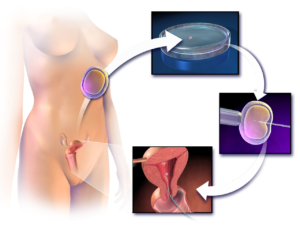
Fertility treatment in Turkey: Testicular biopsy, surgical sperm collection
Testicular biopsy is a technical operation of ART, simple medically assisted procreation that allows recovering a sample of spermatozoa from the testicles of the husband to fertilise the oocyte of the wife. The process is speedy and is carried out on an outpatient basis. It is also used to detect certain male infertility problems, such as azoospermia, ejaculatory canal obstacle, insufficient sperm count in the seminal fluid…
Fertility treatment in Turkey: testicular biopsy cost
The fertility treatment in Turkey’s all-inclusive formula proposed by some hospitals allows you to perform the testicular biopsy process by experts in ART and benefit from postoperative accommodation at a low cost.
Testicular biopsy result
After a testicular biopsy, sperm can be used for in vitro fertilisation or stored and frozen for re-fertilisation attempts. The analysis of the sperm collected will detect any problem of azoospermia or others to have the necessary therapy.
Fertility treatment in Turkey: Artificial insemination
Artificial insemination is one of the simple medical support for reproduction (ART) techniques used for fertility treatment in Turkey. It is a process that helps fertilise the sexual gametes of women and men by artificially placing sperm in the uterus after purification and treatment.
Conduct of artificial insemination process
Artificial insemination is rapid and usually painless; it is done without anaesthesia in a few minutes during the 36 to 72 hours following the onset of ovulation. The spouse’s sperm is collected in the laboratory by masturbation or testicular biopsy surgery. The most potent sperm are placed directly into the uterine cavity to fertilise the egg.
Artificial insemination result
The properties (excellent or poor quality) of sperm affect the procedure’s success.
After two to three weeks of the procedure, a pregnancy test at home shows the success or failure of artificial insemination.
A blood test will confirm the result of pregnancy.
After five to six failed inseminations, the technique is no longer recommended, and it will be necessary to try another method of ART such as in vitro fertilisation.
Fertility treatment in Turkey: Intracytoplasmic sperm injection
For about half of couples who have problems conceiving, the cause of infertility is related to sperm. ICSI is the most common and effective treatment for male infertility.
How does ICSI work?
Treatment is the same as IVF. The difference is that instead of mixing the sperm with the eggs and letting them fertilise, a qualified embryologist (embryo specialist) will inject a single sperm into the egg. This method maximises the chances of fertilisation, as it bypasses potential problems that sperm may encounter in entering the egg.
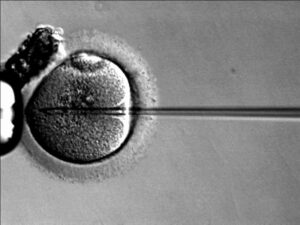
Fertility treatment in Turkey: Egg freezing to preserve fertility
Egg freezing is a woman’s fertility preserving method so that she can try to have children at a later date. It consists of collecting a woman’s eggs, freezing them, and then thawing them later for use as part of fertility treatment. A woman’s chances of conceiving decrease naturally as she ages, as the quality and number of her eggs decrease. Egg freezing method can be an attempt to preserve fertility by freezing eggs during woman’s youth, when the eggs are of the best possible quality.
The standard egg retention period is at least ten years, but women can keep their eggs for up to 55 years under certain circumstances. For example, if the woman is at risk of becoming prematurely sterile due to medical treatments such as chemotherapy.
Eggs frozen and thawed must be fertilised using a fertility treatment called ICSI because the freezing process makes the outer shell of the eggs harder, and sperm may be unable to penetrate it naturally as part of IVF.


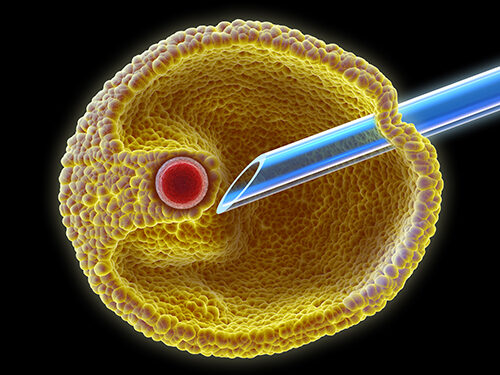




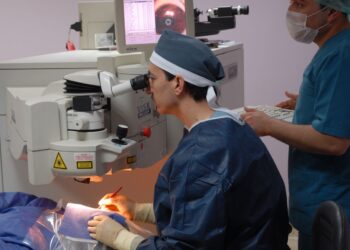




Discussion about this post